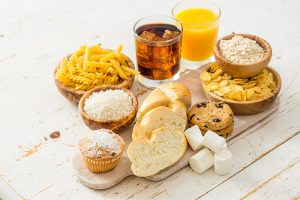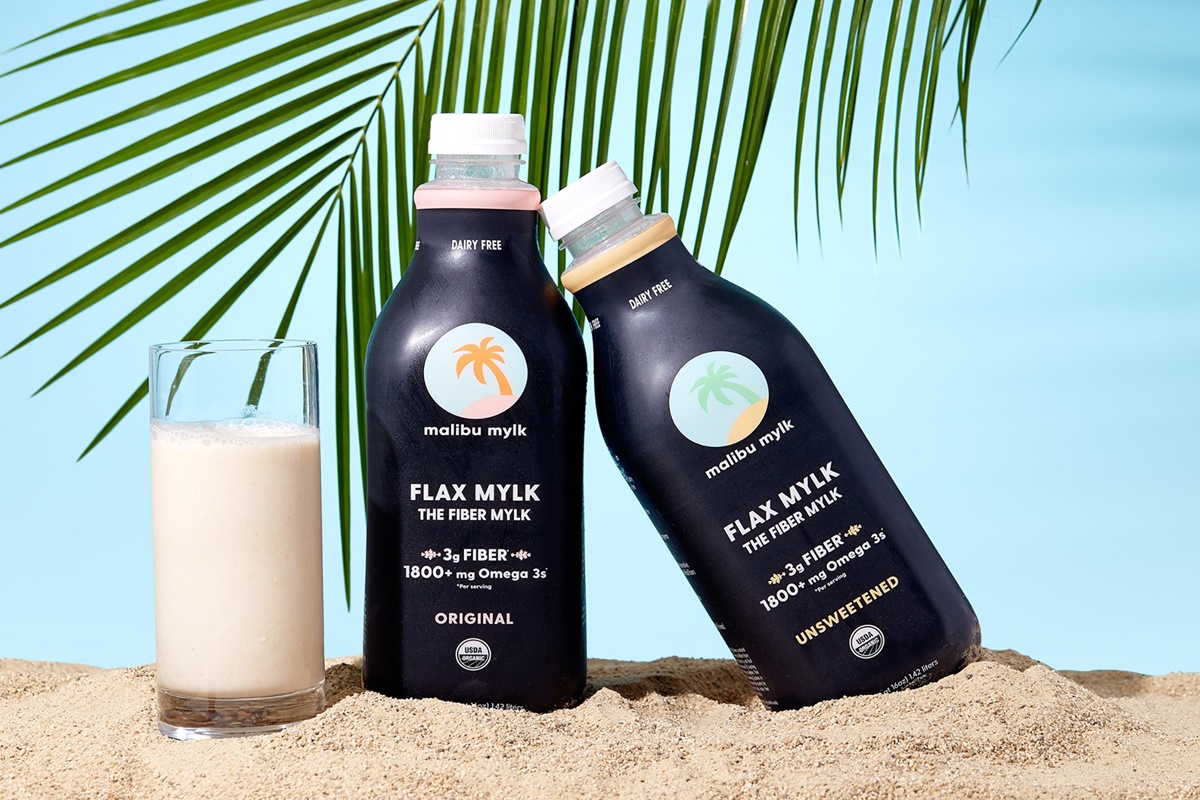What is insulin?
Insulin is the hormone made by the pancreas that allows your body to use sugar (glucose) mainly from carbs in the food that you eat for fuel or to store glucose for future use.
It goes like this...digested food is broken down and enters your bloodstream as sugar, or blood glucose. Insulin’s role is to move that glucose out of the bloodstream, where an excess is dangerous, into the cells of the body where energy is generated. When this process is well balanced, your brain and body have a steady supply of energy and stored energy to use as needed. Insulin’s main job is to stabilize blood sugar and keep levels within a very specific range, but it's an imperfect process since different foods are converted into blood glucose at different rates. Refined sugar and flour, for instance, convert very rapidly which triggers a flood of glucose into the bloodstream. This ‘spike’ of sugar now requires a ‘spike’ of insulin to quickly rid the bloodstream of the overload. But that rapid response from a large amount of insulin, can cause blood sugar to drop too much (hypoglycemia), making you to feel shaky or suddenly hungry (i.e. “hangry”)... and because the brain relies exclusively on blood glucose for fuel, it's very common to experience symptoms of headaches, dizziness and fatigue when levels drop too low. This is known as the crash after a sugar ‘high.’ The trouble with this vicious cycle of spike and crash, is that if it continues insulin becomes imbalanced and dysfunctional leading to insulin resistance, metabolic syndrome and diabetes.

What is insulin resistance?
Insulin resistance happens when a diet too high in refined carbs and simple sugars overloads the cells of the body so that they fail to respond (resistance) to insulin and can't absorb the excess glucose, leading to chronically elevated insulin levels and increased fat storage as well as hormonal imbalance such as PCOS (polycystic ovarian disease) and increased risks for diabetes cardiovascular disease and cancer.
Think of insulin resistance like the pizza delivery guy who knocks and nobody answers the door. Insulin signals that fuel (pizza) is coming, but your cells (door) do not open up to receive glucose. So, the sugar stays in the bloodstream (outside the door), and after a while your body stores it as fat.
If nobody answers the door, your body sends more pizza delivery guys knocking. Your pancreas produces more insulin to turn up the volume on the signal that your cells should absorb glucose. Sometimes a little more insulin is what your cells need to respond. Insulin resistance is when your cells are overloaded with glucose and fail to respond to insulin’s signal.
Your pancreas can only keep up with so much insulin production. When your pancreas gets overworked, you can end up with insulin deficiency, pre-diabetes, or diabetes, which all cause various levels of poor blood sugar regulation and pesky fat storage that’s tough to come off.
Note: in women with high testosterone levels, high insulin levels tell the ovaries to produce more testosterone which can contribute to symptoms including: irregular periods, acne/oily skin, excess facial/body hair, weight gain, scalp hair loss, irritability/aggression, anxiety, sugar cravings and fatigue, which are also symptoms associated with PCOS. Read our blog post on the official Rotterdam Criteria needed to accurately diagnose PCOS here.
Additionally, high insulin levels can lower sex hormone binding globulin (SHBG) which dumps estrogen into your system, contributing to symptoms of estrogen excess like sore breasts, weight gain & difficulty losing weight, fibroids, and heavy menses. This is one of the many reasons managing blood sugar levels is KEY + supporting the gut and the liver to detoxify toxins and excess estrogen out of the body.
Keep in Mind: MANY doctors or OBGYN’s will suggest birth control or synthetic hormones to “manage” hormonal symptoms. Such default approaches ignore natural rebalancing options that have proved to be very effective for reversing PCOS and rebalancing hormones. Scroll to the bottom of this blog post for helpful resources.

Insulin Resistance in America:
According to the 2017 Centers for Disease control figures, more than 100 million Americans currently have diabetes or pre-diabetes which is close to 1/3 of the population. Nearly 1 in 4 people with diabetes don’t know they have it and almost 90% of people with pre-diabetes aren’t aware of their condition.

It’s important to understand that insulin resistance doesn’t just happen after a weekend of treat meals and sweets, but rather is a result of a lifestyle filled with quickly absorbed sugars, liquid calories (think soda pop, sweetened teas & alcohol), and an abundance of simple carbs like white bread & potatoes, pasta, crackers, and rice. Over time your cells slowly become resistant to insulin and that’s when things go south. The higher your insulin levels become, the more intense the insulin resistance, which can lead to rapid aging, obesity, high blood pressure, crazy sugar cravings, lethargy, and eventually diseases including diabetes, heart disease, stroke, dementia, and cancer.

Improving insulin sensitivity (how responsive your cells are to insulin) can help you reduce insulin resistance and the risk of many of these diseases.
What is the key to preventing & reversing insulin resistance?
It’s not a death sentence! You can reverse insulin resistance by sustaining normal blood sugar levels with an intentional combination of balanced REAL food meals (which does not require eliminating carbs or restrictive dieting), cutting back on consumption of processed foods and sugars, getting in regular movement you love, reducing the major stressors in your life, and prioritizing deep, restful sleep.
The Diabetes Prevention Program and a number of studies show that people with insulin resistance and pre diabetes can often prevent or delay developing diabetes by changing their diet and lifestyle choices.
More specifically:
Balance Blood Sugar Levels & Cut Visceral Fat:
Excess weight, especially in the belly area, reduces insulin sensitivity and raises the risk of type 2 diabetes. Belly fat in particular can produce hormones that promote insulin resistance in the muscles and liver. One of the best ways to drop some of the visceral (dangerous) fat is by swapping packaged processed foods for whole food alternatives. Another is by reducing your overall stress load by practicing mindful eating, breathing techniques and setting boundaries around your time so you are not burnt out. High cortisol "stress hormone" levels can also lead to more belly fat (and increase blood sugar levels!) which is one of the reasons taking time to rest and recharge is so valuable.
Shop The Outer Aisles of Your Grocery Store
OR better yet, the Farmer’s Market Fill-up on vegetables, organic & grass-fed meats, wild-caught fish, and nutrient-dense carbs like quinoa, sweet potatoes & sprouted Ezekiel or sourdough bread. Add a few servings of healthy fat sources to each meal (i.e. avocado, nuts, seeds, coconut oil & olives) and prioritize fiber at every meal (chia seeds, flax seeds, avocado, artichokes, beans, legumes, raspberries, and lots of greens). Reduce your consumption of dairy (there are great cheese alternatives like Miyokos and Violife and milk swaps like MALK nut milk and Malibu Mylk which is flax milk high in fiber and nut-free) and opt for only organic dairy variations to avoid synthetic hormones that can lead to weight gain and hormone imbalance. Trust us, organic dairy is far more flavorful anyway and if you order from delivery services like Imperfect Foods, the pricing is very reasonable (you can purchase meats, seafood, produce and non-perishable goods too)!

Check out Butcher Box for at-home organic meat delivery and Thrive Market for their sustainable seafood and meat boxes (plus healthy non-perishable goods at 20-50% off in-store prices).

Reduce Added Sugars:
All sugar can raise blood sugar levels and contribute to insulin resistance, but certain kinds should be limited to special occasions. One of the simplest places to start is by swapping all the sneaky liquid sugars like sodas, artificial juices, and energy drinks that include corn syrup, sucrose, agave, cane sugar, and/or artificial sweeteners. Instead, try soda water with fresh lemon or lime, fruit-infused spa water, and green and herbal teas. Want a little natural sweetness? Add a couple of teaspoons of raw honey or maple syrup! Get used to turning over the label on the foods you buy and look for total sugars. Aim to keep your daily content of added sugar between 24 grams for women and 36 grams for men max. To put it into perspective, just one 12-ounce can of coke or Red Bull contains 39 grams...(Woah!)
Be Mindful of Carbs
Reducing your carb load (especially those that are refined/processed) could help reduce insulin resistance since high-carb diets can lead to increases in blood sugar, which put more pressure on the pancreas to remove sugar from the blood. The idea is not to be afraid of carbs but rather to look for nutrient-dense options like sweet potatoes, beans, butternut and spaghetti squash, quinoa and whole, sprouted grains. Carbs are the bodies preferred energy source and are an important macronutrient for healthy menstrual cycles (and our sanity) so rather than cut them out, consider reaching for the nutritious variations 80% of the time and pair them with enough fat, protein and fiber to slow digestion and support stable blood sugar levels. Need help putting together a meal? Download our health coach @bodyblissbyjess's free Sexy 6 Formula here.

What about Intermittent Fasting?
Another popular way to reduce insulin levels is by experimenting with intermittent fasting in which you eat all the food your body needs during a shorter period of time. There are many methods, but the most common involves fasting for 14-16 hours, however a 12 hour fast may be safer for women with hormonal imbalances and/or a history of dieting. When fasting your body becomes more sensitive to insulin which may help prevent weight gain and reduce your risk of diabetes. It can also decrease your insulin levels, which signals your body to start burning stored fat instead of glucose. That said, IF is not for everyone and we don't often recommend it to our clients, so it’s important that you evaluate based on your unique body and hormone levels. We wrote a whole blog post on the pro’s and con’s of Intermittent fasting (here) and why it’s really important to modify it for your lifestyle...especially as a woman! Note: if you have a background of yo-yo dieting or disordered eating, we do not recommend this practice.
Practice Self-Care to Reduce Stress:
Prolonged stress tells our body to enter "fight-or-flight" mode, stimulating the production of the stress hormone cortisol which can make the body more insulin resistant. Activities like meditation, exercise, sex, painting, long walks, breathwork and playing with your kids & animals are great ways to help increase insulin sensitivity by reducing stress! Take time to eat a meal away from distractions (phone, TV, computer, people, etc) which can help balance out cortisol levels, improve digestion, elevate mood, and satisfy cravings. What calming activities can you add to your life right now?

Make Daily Movement A Priority:
Aerobic and strength training can help increase insulin sensitivity and combining them in your workouts can be even more effective. When you're moving your body, you also release feel-good hormones and since you're burning calories, you may also lose weight which, as we know, can help prevent or reverse insulin resistance! Write down a list of workouts you enjoy now or that you remember loving in the past and challenge yourself to schedule 2-3 of them into your calendar this week. Ideas: take an at-home Pilates class, lift weights, go for a brisk walk, get in a cardio sweat session while dancing to your favorite playlist & explore the great outdoors by hiking, kayaking or paddle boarding!
Pro Tip: after consuming a meal heavier in carbs and calories, throw on your running shoes and go for a 10-20 minute walk, bike ride or dance party! Moving your body right after a meal is a great way for the body to use some of that sugar (carbs) for energy and improve insulin sensitivity. Want to learn more about this? Listen to the Solo 2.0 Podcast episode with "The Metabolism Mentor," Austin McGuffie here.
Get High Quality Sleep:
We live in a culture that often promotes "sleeping less and working more" but sleep is a critical time for restoration and repair of the body and helps maintain our immune system, which keeps us from getting sick. Deep sleep is especially crucial to the body’s ability to use insulin to regulate blood sugar and when we don't sleep well, it can trigger changes to hormones, creating a negative ripple effect which can lead to intense sugar cravings, ravenous hunger and weight gain. Have trouble sleeping? Try the 4-7-8 breathing technique from Dr. Andrew Weil, take a high quality melatonin supplement (only on nights you really need it) and/or try this CBD + Nature tincture (use code BALANCE for 20% off) which can help "turn off" the brain and calm your nervous system before bed!

Think about a few of these suggestions that you can add into your daily routine this week & write them into your to-do list so they can become a priority. It’s the small incremental changes that we make that add up to lifelong, meaningful results!
RESOURCES:
Nutritional Help for High Androgens, PCOS and/or Related Symptoms (YHB focus sheet)
Woman Code, Alisa Vitti (A revolutionary food-based program to balance hormones and reverse imbalances that cause painful periods, PMS and PCOS)
Hormone Intelligence, Aviva Romm (the complete guide to calming hormone chaos and restoring your body's natural blueprint for well-being)
Download our health coach @bodyblissbyjess' "Sexy 6" formula to assist in proper blood sugar balance and micro & macro nutrient requirements!
Interested in testing your hormone levels and getting started on an all-natural rebalancing plan? Check out our at-home hormone testing + consulting packages HERE.
